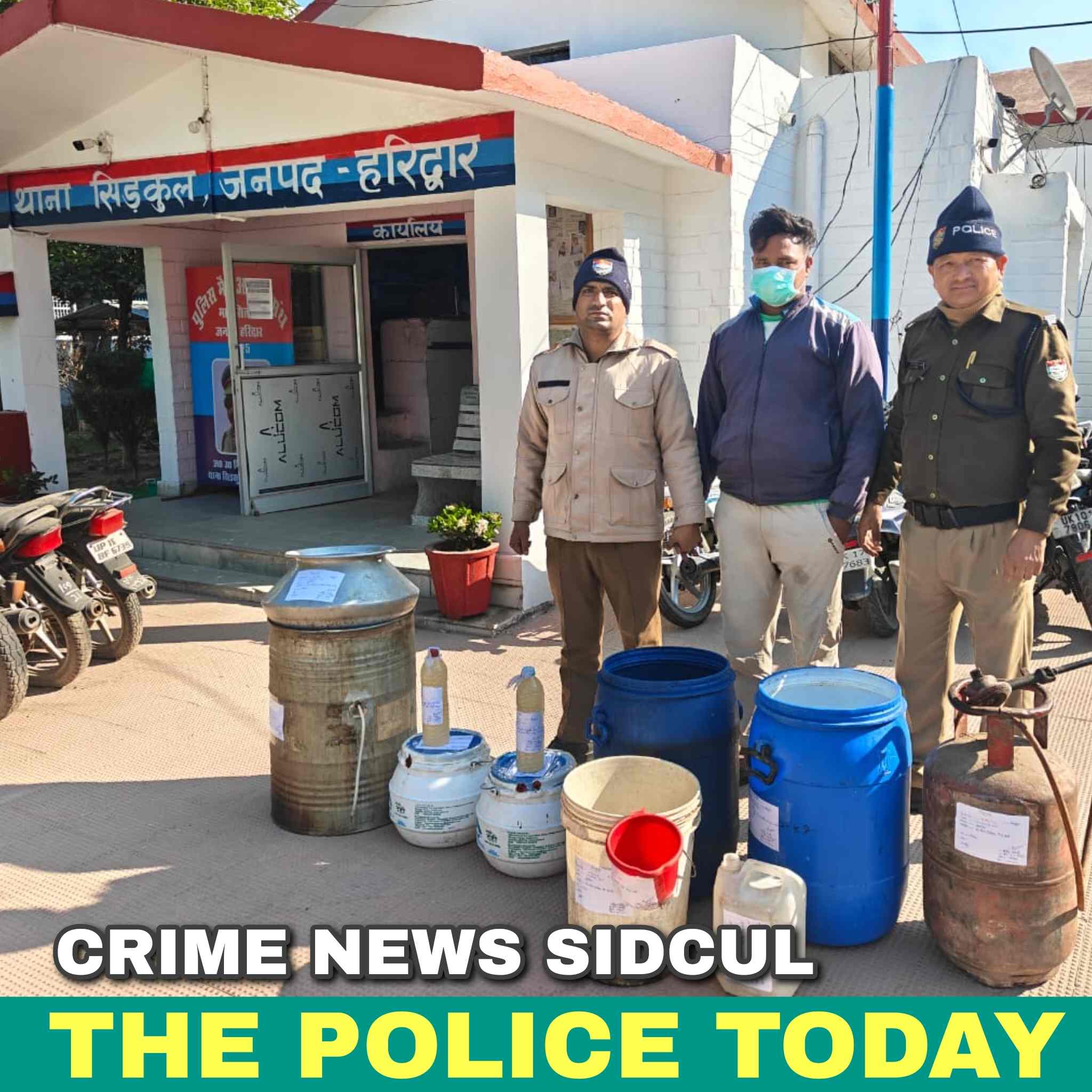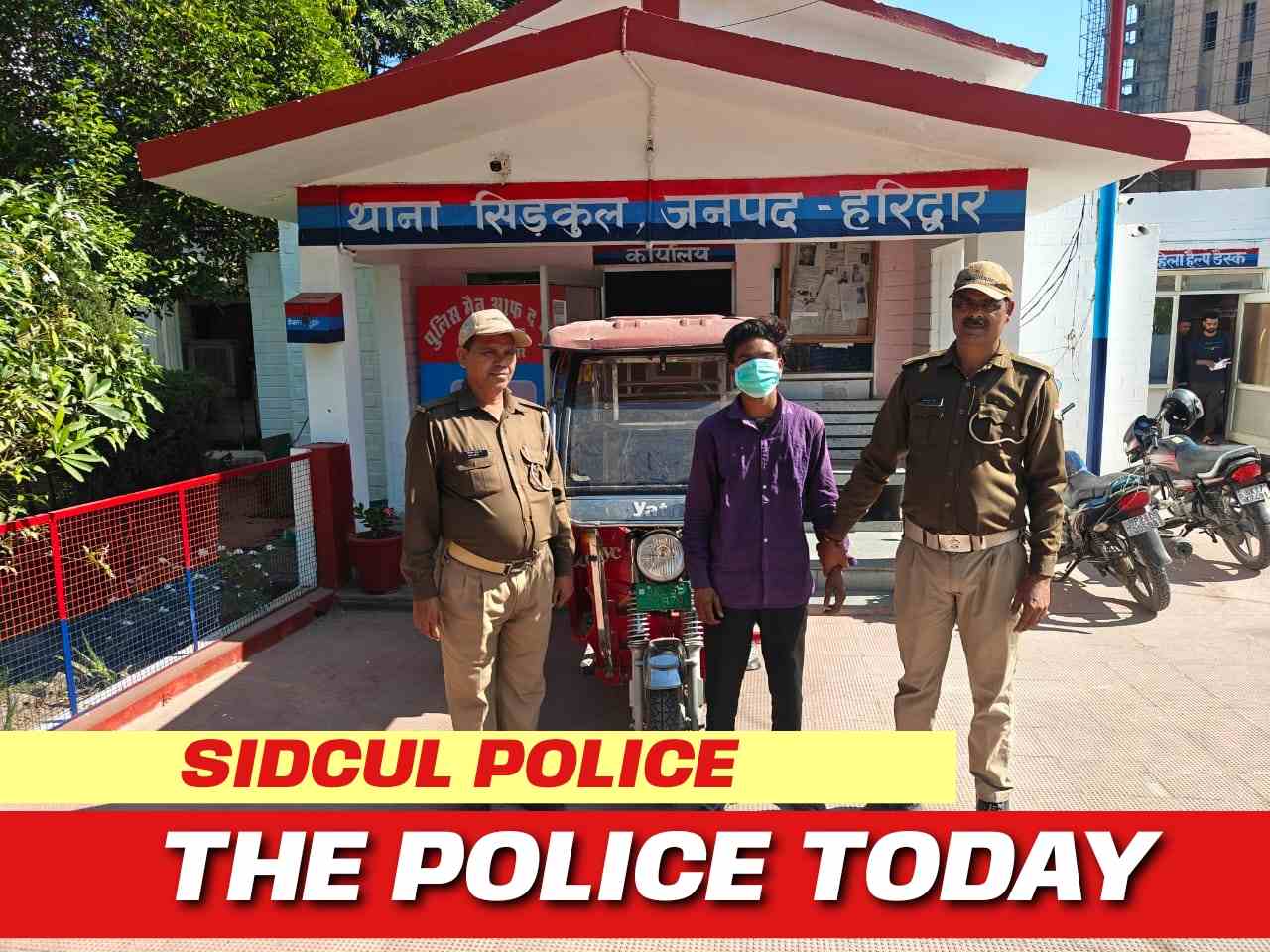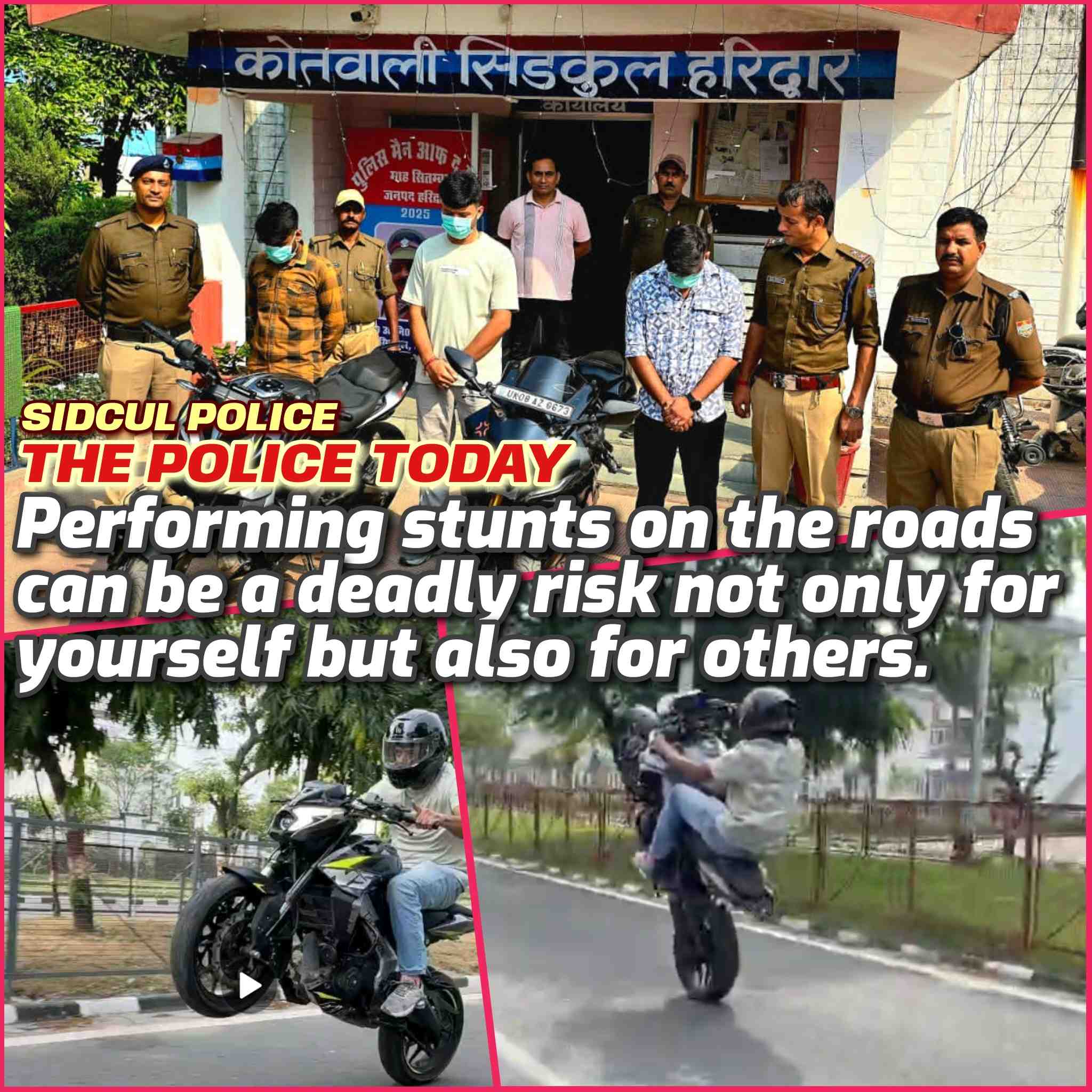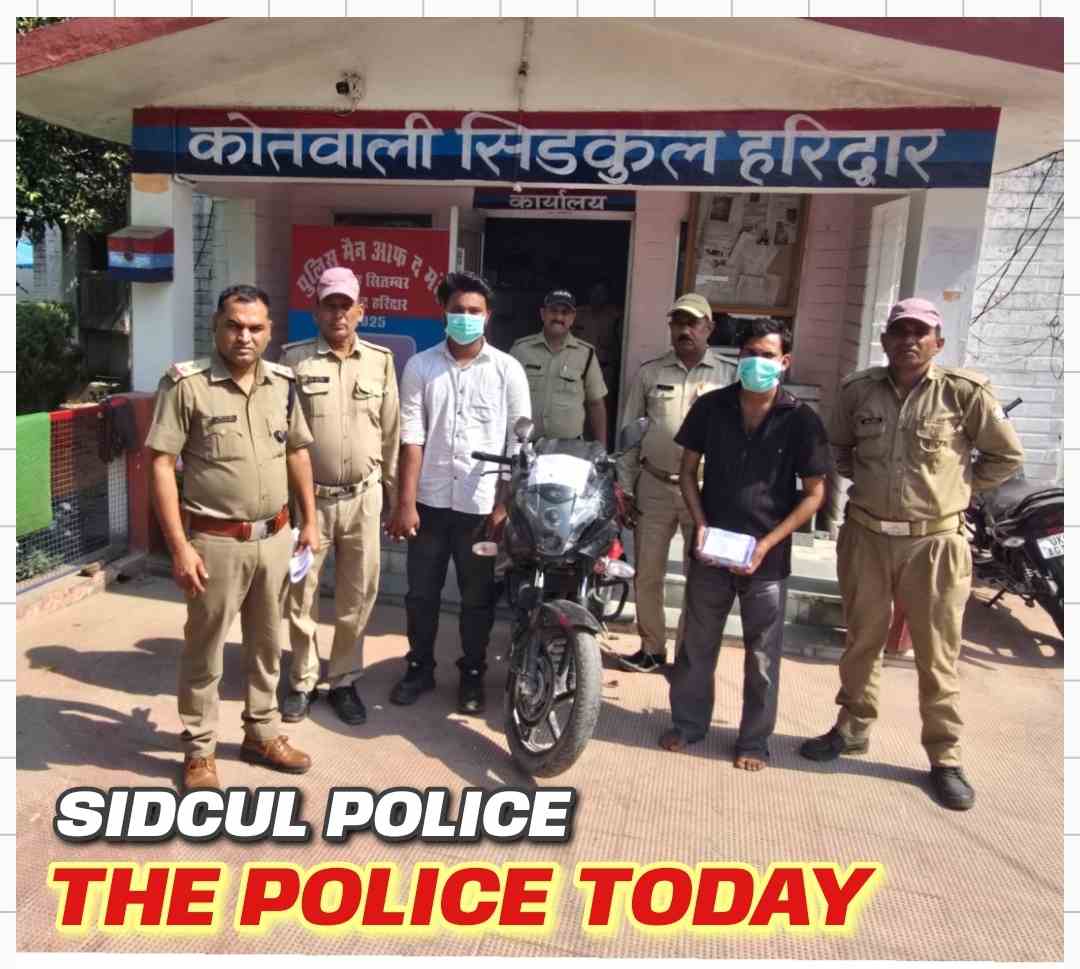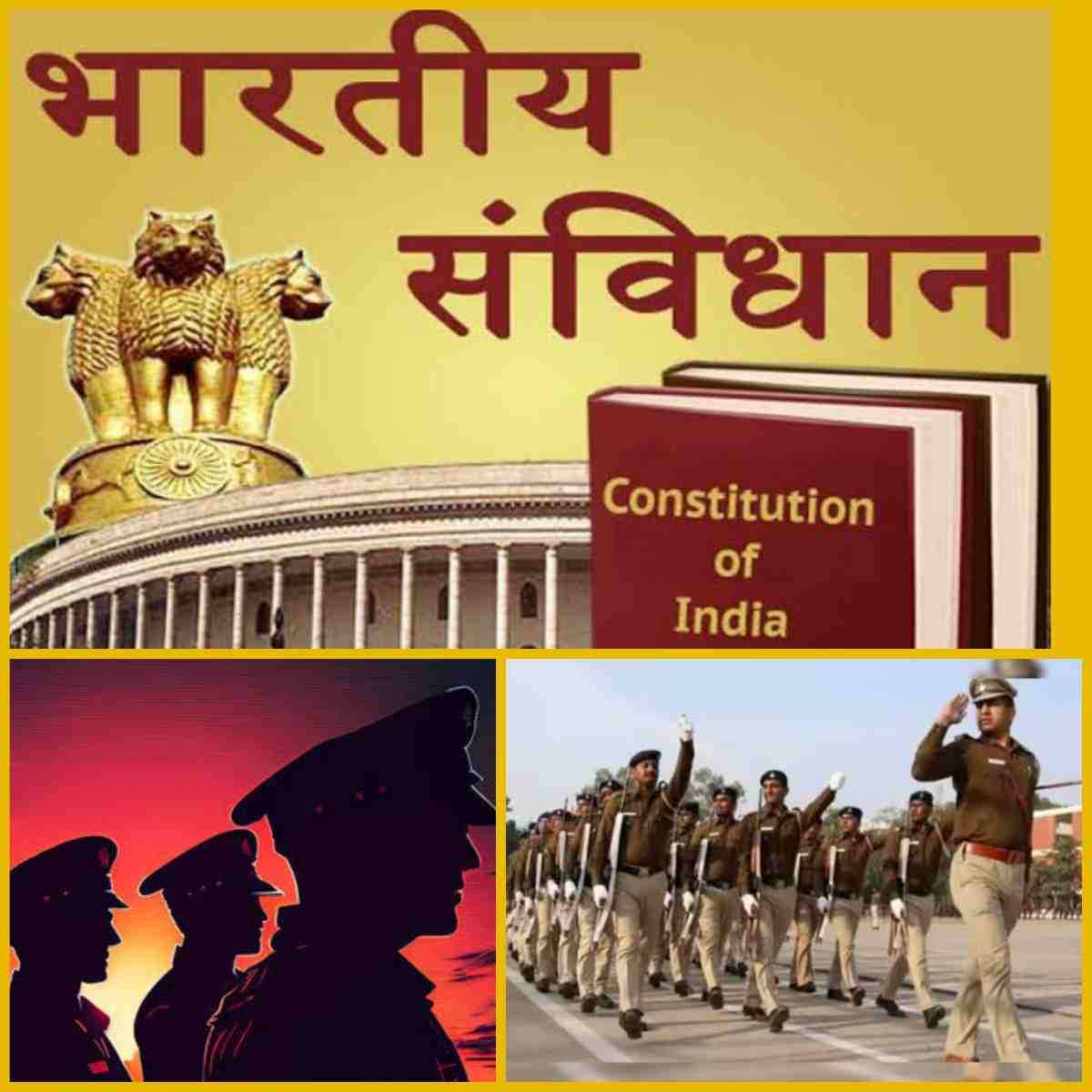The Police Powers & Restrictions-Displaying notice of arrested personal and In case of offences punishable with imprisonment below 3 years and, know a lot more
THE POLICE TODAY/NEWS
Haridwar:
The Police Powers & Restrictions
1.Displaying notice of arrested persons
In order to prevent the misuse of
provisions related to arrest by Police,
the BNSS (Cl. 37/B) has introduced
additional obligation on the State
Government to designate a Police
Officer who would be responsible for
maintaining information regarding
all arrests and arrestees. The Clause
also requires such information to be
displayed prominently in every Police
Station and at District Hqrs.
2. In case of offences punishable with
imprisonment below 3 years and where
the accused is infirm or above 60 years
of age, a police officer cannot arrest the
person without prior permission of an
officer not below the rank of Deputy
Superintendent of Police (Cl. 35/7).
3. The category of persons who
could be informed regarding arrest
of the arrestee has been expanded
to include ‘any other person’, apart
from the existing provisions related
to informing any relative or a friend.
An entry of the fact as to who has been
informed of the arrest shall be made in
a book to be kept in the Police Station
in such form as the State Government
may provide (Cl. 48/3).
4. Provision has also been made
in the BNSS to enable the medical
practitioner conducting the medical
examination of an arrested person, to
conduct one more examination if such
practitioner deems it fit (Cl. 53).
5. Vide Cl. 58 of BNSS, an arrestee
may be produced before a magistrate
within the first 24 hours of arrest,
even if such magistrate does not have
jurisdiction.
6. Persons bound to conform to
lawful directions of Police: This is a
new insertion as CI.172 in Chapter XII
on ‘Preventive Action of the Police’. It
provides that persons must conform
to directions of the police, which are
issued in the course of preventing the
commission of a cognizable offence.
A Police officer may detain or remove
any person resisting, refusing, ignoring
or disregarding to conform to any
direction given by him for fulfilment
of any duty of a Police officer under
Chapter XII on ‘Preventive action of
the Police’ and may either take such
person before a Magistrate or, in petty
cases, release him as soon as possible
within a period of twenty-four hours.
7. Protection against Prosecution
for acts done under ss.148, 149 and
150: Unlawful assembly is dispersed,
under the CrPC, by the police under
directions of an Executive Magistrate or officer in charge of a police station.
For any dereliction in carrying out of
these duties, police officers cannot be
prosecuted without sanction of the
government. This essentially provides
a layer of immunity to the officers.
8. Some of the Police related salient
provisions are listed in Annexure III.
News by
Poonam Bhardwaj







